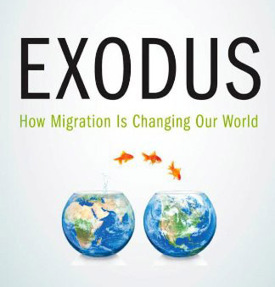Rethinking the Refugee Crisis
Paul Collier
Thursday, 29 Sep 2016 at 8:00 pm – Sun Room, Memorial Union
Economist Paul Collier is an expert on developing markets and the author of The Bottom Billion: Why the Poorest Countries are Failing and What Can Be Done About It. His most recent book is Exodus: How Migration Is Changing Our World. Collier is director of the Centre for the Study of African Economies at Oxford University, advisor to the Strategy and Policy Department of the International Monetary Fund (IMF), and advisor to the Africa Region of the World Bank. He served previously as director of the World Bank's Development Research Group. Part of the Economics Forum and World Affairs Series: Redefining Global SecurityPaul Collier's book The Bottom Billion has been compared to Jeffrey Sachs's The End of Poverty in its scope and impact. His other books include Wars, Guns and Votes: Democracy in Dangerous Places and The Plundered Planet: Why We Must - and How We Can - Manage Nature for Global Prosperity. Collier also regularly writes columns and commentary for such publications as the New York Times, Financial Times, Wall Street Journal and Washington Post.
Cosponsored By:
- College of Human Sciences
- College of Liberal Arts & Sciences
- Economics
- World Affairs
- Committee on Lectures (funded by Student Government)
Stay for the entire event, including the brief question-and-answer session that follows the formal presentation. Most events run 75 minutes.
Sign-ins are after the event concludes. For lectures in the Memorial Union, go to the information desk in the Main Lounge. In other academic buildings, look for signage outside the auditorium.
Lecture Etiquette
- Stay for the entire lecture and the brief audience Q&A. If a student needs to leave early, he or she should sit near the back and exit discreetly.
- Do not bring food or uncovered drinks into the lecture.
- Check with Lectures staff before taking photographs or recording any portion of the event. There are often restrictions. Cell phones, tablets and laptops may be used to take notes or for class assignments.
- Keep questions or comments brief and concise to allow as many as possible.





